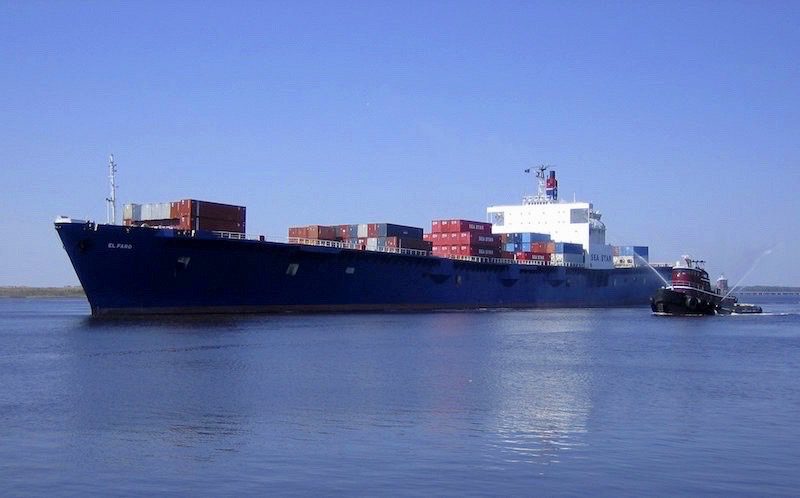The El Faro is shown in this undated handout photo provided by Tote Maritime in Jacksonville, Florida, October 2, 2015. REUTERS/Tote Maritime
A new paper exploring maritime accidents and how they can have prevented if regulations are followed has been entered into the Congressional Record.
The educational maritime paper, titled Spotlight on Safety: Why Accidents Are Often Not Accidental, discusses major Marine Accidents and Tragedies; it was originally published in July 2019 and recently published in the Congressional Record.
The paper looks at causal effects behind calamities that could have been prevented if promulgated Maritime Regulations were followed.
“In the shipping economy, however, commercial pressures may lead to conflicts with the regulatory regime. It is therefore no surprise that failure to comply with the regulatory regime is a factor in many maritime casualties,” the paper reads.
The paper highlights compelling evidence on why accidents are preventable, how human life can be saved, and the environment protected by adherence to promulgated regulations. It points out then when profit is favored over safety, accidents can and do follow.
“Although technology provides ship operators with the ability to have immediate knowledge of conditions aboard ship, including the degree of compliance with regulatory standards, there is a tendency to discourage reporting so as to maintain management’s immunity from personal liability,” it reads.
Why are regulators not following the guidelines set out for them? Why are inspectors overlooking obvious irregularities? How are maritime companies able to sidestep regulations? These are all questions the authors set out to answer.
“With modern technology, the burden of responsibility can, and must, extend to ship operators, ship owners, classification societies and flag states,” according to the authors.
Further, why are seaman fearful of speaking up, and sailing vessels outside of regulatory compliance?
“It is difficult to establish a shared safety culture between the ship and management when the future of the master and crew may depend on not sharing safety information with management,” the authors write.
All of these complex issues are examined. The authors strongly encourage those interested to review the appendices and imbedded links to get a more poignant overview.
The paper was predominantly authored by: Captain John Loftus, retired MMP, Captain Don Marcus, President – International Organization of Masters, Mates & Pilots, Captain George Quick, Vice President, MMP, and Professor John Dalziel, Adjunct Professor, Dalhousie University, Department of Industrial Engineering
On Nov 2019, the paper was entered into the Congressional Record of the “HEARING BEFORE THE SUBCOMMITTEE ON COAST GUARD AND MARITIME TRANSPORTATION OF THE COMMITTEE ON TRANSPORTATION AND INFRASTRUCTURE HOUSE OF REPRESENTATIVES ONE HUNDRED SIXTEENTH CONGRESS” by Congressman Rick Larsen, standing in for Chair, Hon. Sean Patrick Maloney(Chairman of the subcommittee).
Read the paper: Spotlight on Safety: Why Accidents Are Often Not Accidental

 Join The Club
Join The Club











